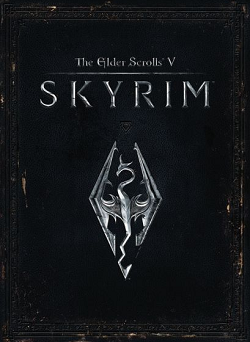written by Frank Dutkiewicz
This marks the end of Daily Science Fiction‘s first full year of publication. Speculative fiction’s first email service magazine has done well for itself. Although it has lacked the fanfare it deserves, its grass roots ascension in the market has not gone completely unnoticed. Two respectful award organizations (Million Writer’s awards and the Micro awards) have nominated several stories that debuted on DSF. Congratulations to Daily SF and its authors.
Now onto this month’s storiesâ€
In “Found in the Wreckage” by Marge Simmons (debut 12/1 and reviewed by Anonymous), the author re-works a theme from Maria Doria Russell’s The Sparrow. A young woman is found in a crashed spacecraft, by a human-like alien male.
The male alien is obviously very taken with the woman despite some differences in their physical design and takes it upon himself to look after her. He decides she could be ‘improved’, does the job himself, and then takes her as his mate. Surprisingly, they are clearly compatible, as she becomes pregnant.
This is a story about a how we can impose our own values and beliefs onto others and cause great harm despite not meaning to. I thought the story was smoothly written, but I didn’t get much of an alien feel from the ‘alien’. I am left wondering how they could mate successfully when they have evolved (presumably) on different planets in different systems. I’d rate this as five out of seven rocket-dragons.
“The Girl in the Next Room is Crying Again” by Peter M Ball (debut 12/2 and reviewed by Dustin Adams). I don’t fully understand the connection between smelling and altering someone’s memories, but author Peter Ball makes it work because this is a Story. (Capital S).
We don’t know what the narrator did to warrant a death sentence against his soon-to-arrive former boss, but that doesn’t matter, because we’re firmly planted in the narrator’s shoes and the present is the only thing that matters. To pass the time while waiting for Morley, his former boss to arrive, the narrator listens to and smells and tastes her bitter memories. However, he can’t quite make out why she’s in distress, so he makes up names, histories, and reasons for her sadness.
But what does one do with all these stories, now that they’ve been thought up, they kind of exist, right?
Short, sweet, to the point, written well, and what a fun ending! “SchrÃ�’ �dinger’s Outlaw” by Matthew W Baugh (debut 12/5 and reviewed by Dustin Adams) has a small prerequisite, in that you know of Erwin SchrÃ�’ �dinger and his famous “cat” experiment. The experiment is both obscure and well known. The name, yes; the details, generally no.
Presented here are the details, so no need to look any further, only, this time we have the Witchita Kid… and he’s in a quantum state.
The author of “Substitution” by Brooke Juliet Wonders (debut 12/6 and reviewed by Dustin Adams) does a fine job of slowly revealing the true nature of the narrator. Given the short length of the story, this is quite a feat.
The narrator has been replaced by a younger, (newer?) model and is responsible for training him. Yet, the narrator has fallen in love with his owner, and, while perfectly obedient, can’t help but notice all the flaws inherent in the new model.
While reading I felt genuinely sad during most of the story, which is why I rated this quite high. Assuming that was the author’s goal, she succeeded brilliantly. Worth a look.
An automated coroner yearns to learn more about death in “Autopsy” by Budge Burgess (debut 12/7 and reviewed by Frank D). The protagonist is an AI unit built to investigate the causes of death. It is very good, but has much it still needs to learn.
“Autopsy” is a slow to develop story, which served it really well. The protagonist is successfully cast as cold and calculating, very fitting indeed. Mr Burgess’s bio says he is a crime writer; he’s good at it. My only complaint is the reveal was sprung a little too quick for me. Nevertheless, a well done story for a sci-fi horror.
Jordan (Jonah) is from the future in “A Time to Kill” by Melanie Rees (debut 12/8 and reviewed by James Hanzelka), sent to prevent catastrophic events by eliminating their perpetrators. His current target is Ella, a girl from a time and place just prior to his own. During the execution he comes to question the nature of his tasks, and the infallibility of the council selecting the targets. When the messenger brings the next assignment, he also brings answers to Jonah concerns, but not answers that provide comfort.
This was an interesting thought piece about the nature of time travel and the consequences of “adjusting” the timeline. I was somewhat put off by the writing, however. The story was a little confusing at first, part of the reason may have been the duality of names for the main character. I also found parts of it a little uneven, but overall I liked the story. I would have enjoyed it more if execution were a little better.
“Character is What You Are” by Michael R. Fletcher (debut 12/9 and reviewed by James Hanzelka).
Alex Baker is a Senior Systems Architect at a company obsessed with security. Their primary method of maintaining security for their intellectual property involves a mind plug that ensures loss of the memories accrued during the workday. This sets up a conundrum for Alex, his friend Jason and fellow Senior Systems Architect, Raajaa when off duty and workplace relationships overlap.
This story has a number of interesting facets. The primary interplay between friends and lovers when half your life can’t be remembered is the primary thread. The story also deals with things like corporate ethics, what is reality and what forms our essence. The writing, however, is a little uneven. After a rocky start it settles down to a smoothly told tale that sets up the issues nicely. The ending, however, is a little too smooth given the potential issues set up earlier. It seemed like the author chose to just put together a “and they lived happily ever after” ending without fully addressing some of the deeper elements he brought up earlier.
“Inflection” by Tina Connolly (debut 12/12 and reviewed by Carl Slaughter) is about an Earth woman whose alien friend is leaving. He won’t take her with him. He wants no record of his visit.
Her thoughts are told in short Hemingway type sentences. “She had thought she would not see him again. Thought he would return to his home a billion miles away and never say goodbye. Leave her to her own decisions.”
The dialog is minimal. The title apparently comes from both characters relying heavily on body language. The alien touches parts of his and her body to supplement his words. “Beth had told him her name but he never used it. His name for her was “you,” with a light touch on her chin. He did it now as he spoke, and the anisette of him curled along her skin. She did not know how he would describe her when he returned home, how he would represent she when she was not around to have her jaw line stroked. Silent now, his brittle hands touched her hair, her neck, her jaw again. Without the spoken pronoun what did the touch on her chin mean to him? Half a language was an echo, perhaps, a whisper, voices dying in the distance.” As he is saying goodbye, she distracts herself by cutting up boxes. We get detailed descriptions of this process. “She ran her box cutter down taped seams, split the tape with slashing strokes that ran into the cardboard, ran through the corrugation, frayed bits of brown into fringe.”
The flattened boxes represent the dismantling of their relationship. She agrees there will be no record. The Earth woman is pregnant. The tiniest box represents the baby.
Were they lovers? Is he the father? Has she told him he’s the father? Is he leaving to escape the complications of being a parent to a mixed species? Is she considering an abortion? Such a child would certainly be a record. Is this what he is hinting at when refers to no record? Would she go through with such an abortion? Was she just telling him what he wanted to hear when she said there would be no record? The author lets us draw our own conclusions.
For such a short piece of fiction, “Inflection” has a high percentage of literary devices. No small feat. A good one for the literature textbooks.
Peter is a teenager who fishes in the ocean as a hobby. Vesea is a mysterious woman he meets on a train. She has magical powers. When she touches glass, the scenery changes from air to sea. Turns out Vesea is a mermaid type creature. In “Lures, Hooks, and Tails” by Adam Colston (debut 12/13 and reviewed by Carl Slaughter), Peter gets a chilling history lesson about Vesea and her species. Fantasy-horror. Pretty good.
“A Stitch in Space-time” by Nicky Drayden (debut 12/14 and reviewed by Carl Slaughter) is a tale of interdimensional monsters, forbidden technology, and betrayed love. Monsters from another dimension feed on electric pulses, so technology is banned. Before the monster invasion, the husband was a movie actor. Now he has to settle for the stage. But his wife wants to make a movie for him and starring him. Trouble is, if the movie is too long, the monsters break through from the other dimension in search of the electric pulses from the camera. The premise is clever, but the characters are arch typical and the plot is all too predictable, so pass on this one.
“Not a Prince” by Kathryn Yelinek (debut 12/15 and reviewed by Carl Slaughter) is a very unoriginal story about teenage heartbreak and teenage mischief. The plot is thickened by magical powers and a police investigation. But this ending is also predictable, so pass on this one too.
“The Black Spirits Which Rage In The Belly Of Rogue Locomotives” by Rahul Kanakia (debut 12/16 and reviewed by Carl Slaughter).
“On the evening that Jack’s mother became a robot, she was enmeshed in the cushions of a sofa as another Law and Order plot was poured into her, one dripping burst of photons at a time, twenty-four times per second. Her mind was ensnared, as per seven o’clock routine, by the grotesque symmetries of situation and resolution, the carefully-crafted simulation plugging itself into her cerebellum through the bare sockets of her eyes, the whirring circle of plot squaring itself in memetic resolutions, each frame carrying the genetic code to build an entire episode, an entire series, an entire world.”
Can you resist such an opening? But if the entire story is like this, the reader quickly overdoses.
“That was the death-impulse: thanatos. It wasn’t very strong, and even the slightest danger made the neurons dance and brushed it back with the need for immediate and decisive action. And even after we conquered danger, for a while the effort of keeping our foot on the world’s neck was enough to stave off death’s final victory, even as, unknowing, we built up the huge edifice of annihilation higher and higher around us and walled ourselves inside it.”
I have no doubt that this makes perfect sense to the author, but it’s all one hand clapping to me. And again, the story contents a very large dose. But author doesn’t stop with fiction. From the author’s notes: “Baudrillard singled out J. G. Ballard’s Crash as “the first great novel of the universe of simulation”. In order to try to wrap my head around what Baudrillard’s aesthetic might mean in practical terms, I went ahead and read Crash. I cannot say that I enjoyed the novel. At the time, I wrote that Crash was “one of the only books I’ve read that has physically nauseated me. Reading it is like driving for twelve hours straight. Your head starts to throb and you get a sick, twisting feeling in your stomach.” That’s exactly how I felt reading “The Black Spirits Which Rage In The Belly Of Rogue Locomotives” by Rahul Kanakia. The title should have clued me into what was in store for me.
“I did not understand it, but there was an incandescence in those foreign polysyllables. It’s a rhetoric that uses technical and mechanical terminology to achieve effects that science fiction rarely strives for. I decided to write a story that tapped into that same rhetoric. The title of this story comes from a line in F. T. Marinetti’s Futurist Manifesto, which has fascinated me for years, and which certainly seems like some kind of spiritual forebear to Crash in terms of singing the beauty of speed.” Perhaps write a Master’s thesis about this, but don’t torture sci-fi/fantasy fans with it. At least we can say that since this was published digitally, brains were fried but no trees died.
A young girl sees the world differently in “Butterfly Shaped Objects” by George Potter (debut 12/19 and reviewed by Frank). The little girl sees the world as a lie. Living things are but mechanical objects to her. Knowing not what to do with her, the people put her in an institution, where she lives for the rest of her short life.
I was not satisfied with this tale. The reader is left to wonder if she is mad or possesses an ability no one else has. Whatever the case, the ending is bleak and the story is unresolved.
“Are You There? Are You Safe? Is The Flock Safe?” by D. Robert Harman (debut 12/20 and reviewed by Frank) is the story of a man who watches over engineered birds on a colony world. The birds are copies , the DNA of the originals were damaged on the voyage. Turner studies the birds and learns their calls. The copies are different than the Earth’s species, becoming a far tighter group than its original cousins.
“Are You There?” is one odd bird of a tale. Turner becomes an outdoor recluse, choosing to remain a part of the phony birds’ community rather than be a part of society. The story fizzles and the end left me wondering of its greater point.
“Crickets” by William Greeley (debut 12/21 and reviewed by Carl Slaughter) is a SETI story with a snippet of a plot and an unclear purpose. There seems to be a message. If the message is deliberate, it’s a decidedly anti-SETI message.
“Naughty or Nice?” by James S. Dorr (debut 12/22 and reviewed by Carl Slaughter) is about a civilized, self-justified, vampire prostitute who takes Christmas off and writes to Santa. She hangs with human working girls and compares her services with theirs. She describes her relationship with her clients. She delves into past life dating back hundreds of years. Is she naughty or nice? Readers are left to draw their own conclusions. Suffice it to say, she makes a strong case for herself. Never mind pondering whether she can convince Santa she’s nice and not naughty. No, ponder instead Santa’s reaction. Surely he’s never read a letter like this one. The premise would make a basis for an enjoyable novel, movie, or maybe even a TV series. Since this story is flash, the reader is left wanting a longer dairy of this very sexy and very charming bloodsucker.
“Don Sebastian’s Treasure” by Colin Harvey (debut 12/23 and reviewed by Frank D).
Rob is a tourist, drawn to the island of Ceftanalona in search of a locomotive that doesn’t exist. The train is said to be the property of Don Sebastian, martyr of the revolution that freed the island from Spain a century before. Rob is rebuffed by his tour guide, Isabella, when he questions her about the train. Rob’s grandfather saw it in his youth and now Rob wants to fulfill a promise by proving it exists.
The tale of Don Sebastian proves to be grander than a mere train, though. The martyr was said to have no family to carry on his name but plenty of descendants. Legend has it that he found the fountain of youth, but claims that he was immortal is dismissed as several Don Sebastian’s who continued on with his name. The legend of Don includes a curse against his descendants and a promise of death for those who dared to touch his train.
“Don Sebastian’s Treasure” is a complicated tale. Rob’s desire to prove the train existed puts him at odds with Isabella. Rob softens the hard woman when he offers to watch over her Alzheimer-inflicted mother so she can work.
I found “Don” a chore to follow. The tale is far more intricate than I felt it needed to be. It had the flavor of a far longer romantic tale, and in truth, the story may have had a greater appeal if lengthen and marketed as such.
This is the second, and last, tale of the late Mr Harvey DSF published. I adored his first but wasn’t as taken in with this one. Nevertheless, Colin’s skill was on full display here. His characters were brought to life for me and his premise was filled with creativity that is hard to match. A true talent that we will all miss.
A schoolboy outcast uses his gift of precognition to avoid teasing in “Ten Seconds” by Scott W. Baker (debut 12/26 and reviewed by Frank D). Max is a favorite target of bullies. His ability to see into the future a mere ten seconds helps only a little, making him a challenging target for tormentors. A new girl offers him a reprieve, a chance to make someone else the target. Belinda is just the person to get him off the bottom rung of the pecking order, but using another as fodder is no way to get ahead, and they may be more alike than Max could have foreseen.
“Ten Seconds” is a unique spin on childhood hazing. Max’s gift has a limited ability. It has its benefits in helping him look bright in the classroom but is of no use in a test. Belinda is understanding, giving Max a break and proving she can more of an asset than an alternative target for him.
I found this tale fun, cute, and fitting. I would like to think a ten second gift of precognition would be more of benefit than dodging spitballs but we are talking about ten year olds after all. This short story is one worthy of brightening your morning.
“Gifted and Talented” by Sadie Mattox (debut 12/27 and reviewed by Frank D) is the tale of young artist who can bring his drawings to life. Charlie shows he has the gift but does he have the talent to make his gift worthwhile? Charlie’s parents take him to a place that measures gifted children.
“Gifted” is a very odd tale. The twist is truly twisted. While reading it, I wondered where the author was heading with the premise. Man did I find out the hard way. A good read for those who like a Stephen King right turn in their fantasy.
“Lists” by Annie Bellet (debut 12/28 and reviewed by Frank D) is just that, a to-do list. The list is rather mundane but filled with items meant to repel vampires. I found it as exciting to read as my list of to-do’s I have at home.
“Cold Cuts” by Don Norum (debut 12/29 and reviewed by Frank D). A pair of astronauts must make a tough choice. They’re too heavy and must shed enough weight if they hope to make a tight window to be able to land, but they have thrown out all the extra material they have left. They look at each other, wondering where the dead weight is.
“Cold Cuts” has one wicked twist in store for you. The obvious solution turns out to be not so obvious at all. A well done tale.
Recommended.
A family from Earth attempts to fit in, in “Chit Win” by Deborah Walker (debut 12/30 and reviewed by Frank D). Samuel and his family have migrated to a graviller colony on an alien world. Work is what has drawn the family here but the customs of the aliens do not sit well with half of the family. Samuel is eager to be a part of the local clique, so when his sister, Veronica, captures a native veole, he claims it as his own. The veole are prized mole-like creatures the local graviller youth use to stage battles, much like cock fights of Earth. Veronica doesn’t want her new pet to be abused like that but Samuel needs the puny animal if he wants to be part of the gang. Status is everything on this alien colony. Family happiness may have to take a back seat.
“Chit Win” is a tale of the effects of chauvinism on a family. Co-operation Law demands customs follow the native species of the planet, and since the Gravillon founded the colony, their customs reign supreme. The women of Samuel’s family are not taking well to their new home but his father appears to be fitting right in. The strains of their new predicament is starting show on Samuel’s parents, but the colony has a job for Pa, and changing the customs is beyond these Earther’s abilities.
The premise for this story is easy to imagine. Picture a liberal family moving into a very conservative community. For the men, the transition is easy but the girls are now second-class citizens. The capture of the veole brings a new dynamic to the family. A challenge to battle Veronica’s pet by a graviller youth offers a Samuel an opportunity to be part of the group. A clash of acceptance and respect comes to bear, lending to a twist that turns the community on its head.
The tale is told through young Samuel’s eyes. The author, I think, wanted to show chauvinism through of a character who is collaterally caught between two sides. The age of the character lent to a simplification of the narrative , a telling style full of information dumps , not one for me. I found the solution a little too convenient and unlikely. Perhaps an expansion of the idea may have helped but as it is, “Chit Win” was a story not fitting of my tastes.
A Fallen Warrior
ÂLast August, the world lost one of its pillars of speculative fiction. Colin Harvey was a man whom I have never met or corresponded with in any fashion, but we had mutual friends and were becoming aware of each other peripherally. His sudden and unexpected death caught everyone by complete surprise. His electronic fingerprints on the internet showed no signs that his time was near. Postings days before his fateful last day spoke of grand and exciting plans.
His story, Chameleon , was the first story of Daily SF I recommended. On his blog, he modestly statedâ€
I’m staggered because as I said in an earlier post, the story virtually wrote itself, and I don’t feel that anything that easy to write could be that good.
Samuel Lemberg apparently disagreed with him, moved enough by it to make a film short of it.
Mr Harvey proved to be a bit prophetic about Daily SF, adding this comment about our early efforts at DPâ€
“â€and to get the insight that many review sites won’t review DSF because ‘there’s too much to review.’ Hopefully Diabolical Plots doesn’t feel that way, and will produce a review of October and subsequent month’s contents, because an awful lot of new, upcoming and talented writers are publishing new there , and it’s free to read.”
I am pleased to say – so far – we have. Daily SF honored Colin by posting at the head of his last published work of fiction, a small retrospect of his contributions to speculative fiction. Colin, like many proud authors, would announce his latest sales on his blog. Judging that he never mentioned Don Sebastian’s Treasure, it’s acceptance likely came after his untimely demise.
So on behalf of all the writers whose trail you helped to blaze before you, I hold my glass in a toast to you. So long my good man whom I would have liked to called a friend. I barely knew ye.
Colin Harvey (11/11/1960 , 8/15/2012)
 Colin was a driving force in the speculative fiction field in England. A writer, reviewer, and editor, he was nominated for both the British Fantasy Award and the Black Quill Award. He has written several novels including Winter Song, edited anthologies like Dark Spires, and published a collection of his short stories called Displacements.
Colin was a driving force in the speculative fiction field in England. A writer, reviewer, and editor, he was nominated for both the British Fantasy Award and the Black Quill Award. He has written several novels including Winter Song, edited anthologies like Dark Spires, and published a collection of his short stories called Displacements.
You can find these and other works of Colin’s at Angry Robot publishing
 I’m not a patient gamer. When I sit down with a new game, I want to dive into the action, run around the world taking in the sights, learn (and use) some skills, and get introduced to and led through a compelling story that doesn’t make me sit still for too long at a time. Which is why I have often avoided RPGs in the past.
I’m not a patient gamer. When I sit down with a new game, I want to dive into the action, run around the world taking in the sights, learn (and use) some skills, and get introduced to and led through a compelling story that doesn’t make me sit still for too long at a time. Which is why I have often avoided RPGs in the past. Melissa Shaw’s short fiction has appeared in Asimov’s, Realms of Fantasy, Analog, and several anthologies. Melissa is a Clarion West graduate and a “Writers of the Future” contest winner. She is currently writing for an as-yet-unreleased video game.
Melissa Shaw’s short fiction has appeared in Asimov’s, Realms of Fantasy, Analog, and several anthologies. Melissa is a Clarion West graduate and a “Writers of the Future” contest winner. She is currently writing for an as-yet-unreleased video game.

 n case people have been wondering, I did do the drawing for the free Flush Fiction book last week as promised. And the name that emerged from the hat was Michael Hanrahan. Michael, if you see this post, could you please let me know what the best way to reach you is? I haven’t had any luck so far. I just need to get a mailing address so I can tell the publisher where to mail the copy.
n case people have been wondering, I did do the drawing for the free Flush Fiction book last week as promised. And the name that emerged from the hat was Michael Hanrahan. Michael, if you see this post, could you please let me know what the best way to reach you is? I haven’t had any luck so far. I just need to get a mailing address so I can tell the publisher where to mail the copy.
 The day has finally arrived, the publication date of Uncle John’s Flush Fiction anthology. As I mentioned a few months back, I sold a story titled “Mysterious Ways” to the anthology. I am particularly excited about this sale, because I know many more people who are familiar with Uncle John’s Bathroom Reader books than who are familiar with my favorite speculative fiction magazines.
The day has finally arrived, the publication date of Uncle John’s Flush Fiction anthology. As I mentioned a few months back, I sold a story titled “Mysterious Ways” to the anthology. I am particularly excited about this sale, because I know many more people who are familiar with Uncle John’s Bathroom Reader books than who are familiar with my favorite speculative fiction magazines.